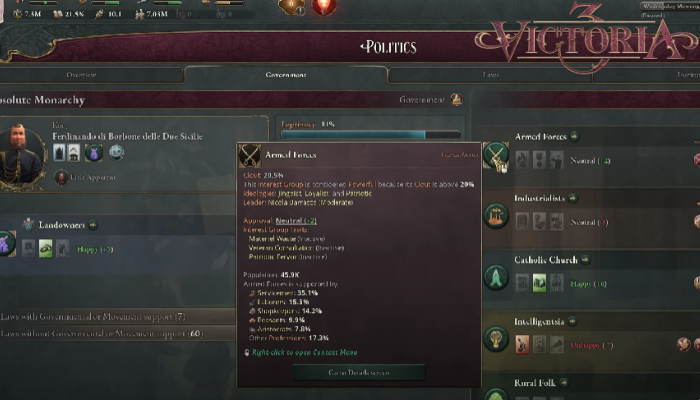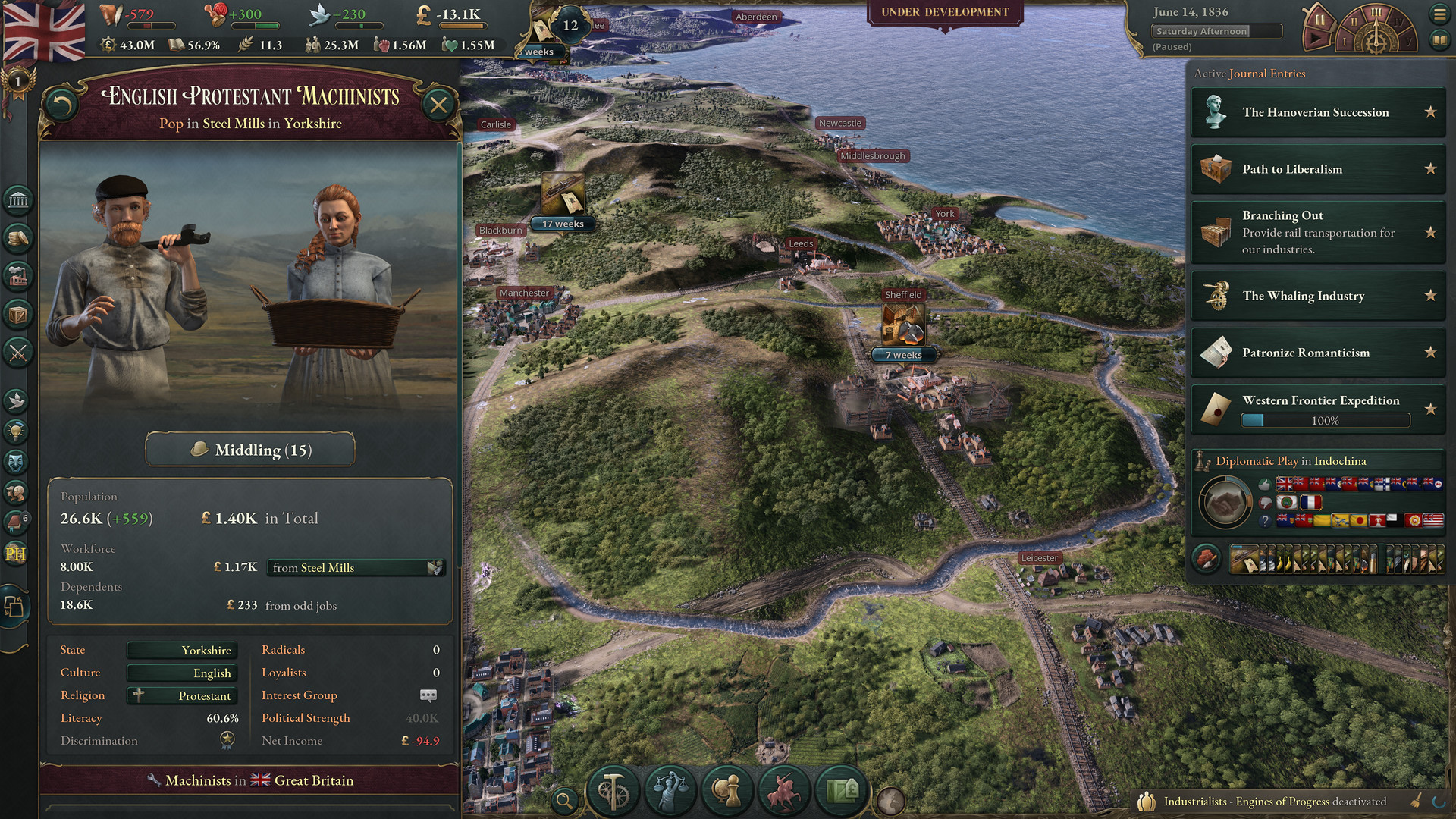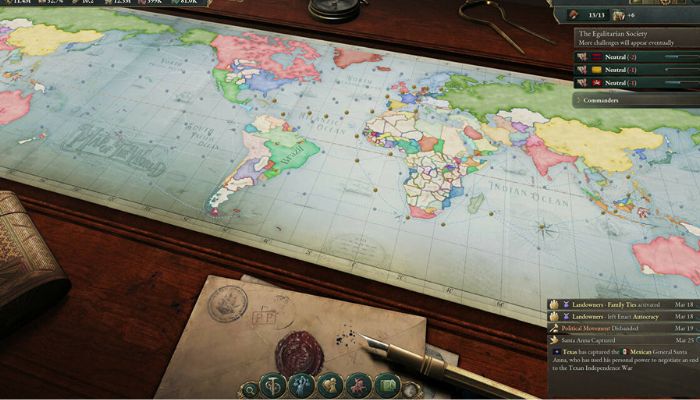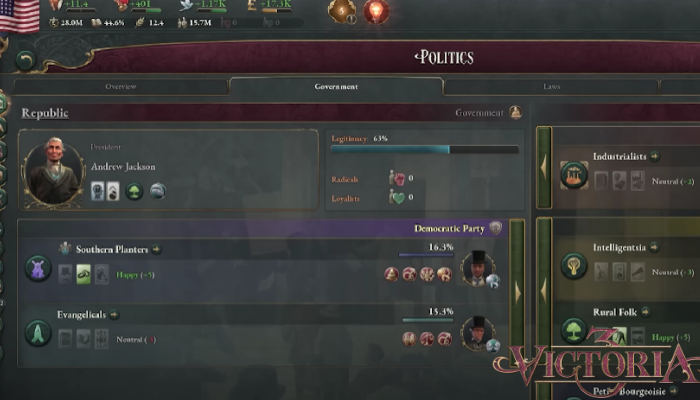Victoria 3 is a game that allows players to control 100 different countries and change history. The focus of the game is on population groups and how to satisfy and appeal to their interests. Policies must be aligned with the interests of pops in order to keep them happy since these interests can vary from country to country.
Political groups that share a common goal often come together to form an interest group. The group’s focus will depend on what each member is interested in. For example, a group of people living in rural areas may be more inclined to fight for lower taxes and better agricultural development. So, accordingly, we have to manage the various interest groups in the game.
Continue reading further to know how to manage interest groups.
Read Next: Can we Play Victoria 3 on XBOX Gamepass?
How to Manage Interest Groups?
In every country, certain groups of people share similar interests in the political realm. These are known as “interest groups.” Each group has its own unique set of views, and they may go by different names depending on the country.

Here are various ways to manage the interest groups in a nation.
Approval of Decisions
The level of approval that interest groups have for your laws depends on many factors, not just the laws themselves. Things like economic conditions and public opinion can also play a role in how these groups feel about your government. The decisions you make and the actions you take during certain events can also impact the approval level of interest groups, depending on how well-aligned they are with the group’s beliefs. Additionally, this can also be affected by the ratio of radicals to loyalists within the group itself.
Bolstering and Suppressing Actions
There are two ways to influence an Interest Group: Bolster and Suppress. Bolstering will raise the group’s stats while Suppressing will lower them. The amount that these actions can raise or lower the group’s stats is governed by the Free Speech law. Higher levels of Free Speech will have a greater impact but no effect at all under Protected Speech laws.
Ideologies
Ideologies are a set of beliefs and preferences that guide what kind of laws an interest group believes in. They are often linked to the group’s leader and can change depending on who is in charge. In some cases, ideologies can be unique to a certain culture or religion.
Traits
Traits are one of several mechanics that interest groups use to indicate their level of approval or disapproval. A group’s traits can be positive or negative, depending on whether its members agree with your laws and policies. A positive trait means they approve of your decisions, while a negative trait means they disapprove.
Clout
The political power of an interest group is often measured by its “clout.” The more influential and powerful a group is, the greater its ability to shape government policy. It is, therefore, important to maintain a balance of power among different interest groups. Otherwise, a government may be perceived as illegitimate, leading to radicalism.
This summarizes our guide on how to manage interest groups in Victoria 3. For more information about this game, check out our other guides.
Frequently Asked Questions
Ques 1. What are interest groups?
Ans. Certain groups of people who share similar interests in the political realm are called interest groups.
Ques 2. What impacts the approval of interest groups?
Ans. The decisions you make and the actions you take during certain events impact the approval level of interest groups.
Ques 3. What is clout used for?
Ans. The political power of an interest group is often measured by its “clout.”










